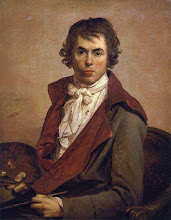Aside from being economically out of touch (gosh I hate cliches, but here I am using one), the single biggest criticism of celebrities is that they are vapid and don't know much about politics. So, why introduce a celebrity into the political climate in the first place?
Well, an easy answer might be that it all goes back to Pop Culture Critics definition of media bias - whatever sells most. Celebrities are big draws. Anna Nicole's death dominated news coverage for what seemed like eternity as an example. Perhaps, though, celebrities and politicians have a few things in common that transcend simple marketing principals.
Politicians, like celebrities, are sometimes very charismatic. They exude an often toxic blend of confidence and arrogance that the masses seem to eat up. Perhaps no more so than Obama, who's confidence and arrogance have been not only an odd part of his message - audacity - but also a major criticism of his image. This is, of course, on top the weird double narrative his campaign is projective. That his presidency is not about him, it is about us. This inclusion, I think, among other things plays into the second thing that celebrities and politicians have in common.
Voyeurs. Power attracts all sort of strange and odd people. Yet, strange and odd people still have a vote. And in a democracy every person you can attract gives you a better chance. So, it seems only natural that politicians would cling to celebrities. They are well documented attracters of people (read votes).
So celebrities sell papers and attract votes. And although they may know absolutely nothing about the issues, through those two things they seem to serve an increasingly important part of the process.

